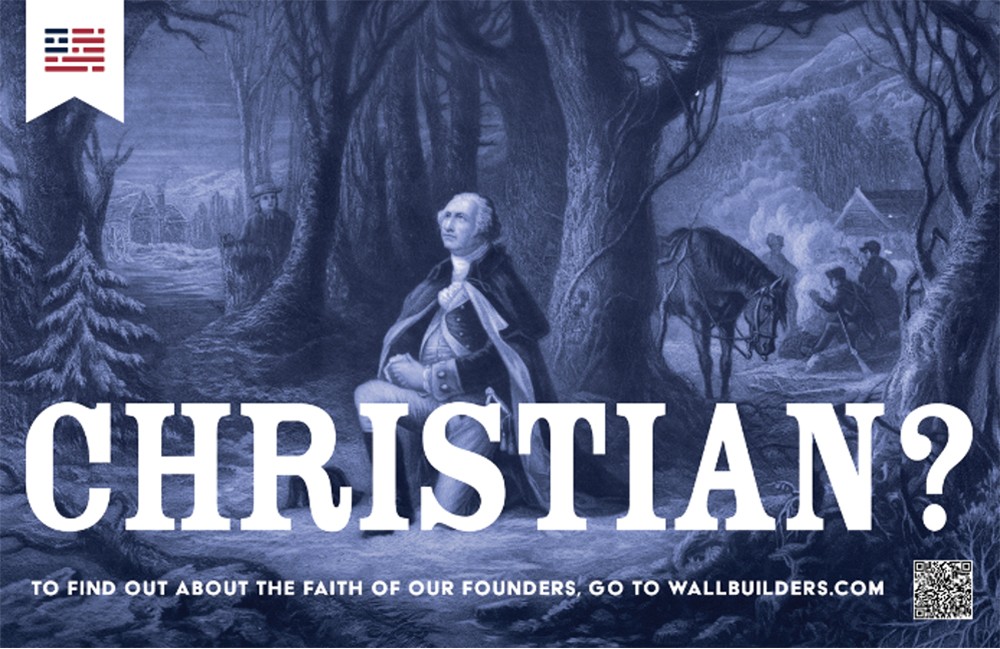Court rules DC transit agency's ban on religious ads violates First Amendment

One of the rejected ads in Wallbuilders v. WMATA. (Courtesy image)
On May 21, a US District Court ruled in favor of WallBuilders, a religious nonprofit banned from displaying its ads on Washington, DC, buses, in its lawsuit challenging the Washington Metropolitan Area Transit Authority’s advertisement policy.
In its lawsuit filed in December, WallBuilders claimed the WMATA’s ad guidelines discriminated against certain opinions and violated the First Amendment.
The agency rejected the WallBuilders campaign on the grounds that it violated its commercial advertising guidelines, which prohibit ads that “promote or oppose any religion, religious practice or belief” and “influence members of the public regarding an issue on which there are varying opinions.”
Judge Beryl A. Howell called WMATA’s guidelines “vague” and said they didn’t provide “objective, workable standards” that could be reasonably applied as the First Amendment requires. Guideline 9, banning ads that intend to influence opinions on controversial issues, isn’t a “reasonable restriction on speech,” said Howell.
“We are pleased that this ruling moves us one step closer to ending WMATA’s arbitrary censorship of speech about public issues,” said Arthur Spitzer, senior counsel at the ACLU District of Columbia, which represents WallBuilders along with First Liberty Institute and Steptoe law firm.
Founded in 1989 by Texas conservative David Barton, WallBuilders promotes the idea that Christian faith played an important role in the creation of the Union and the drafting of the Constitution.
The campaign rejected by the WMATA invited the public to learn more about the Founding Fathers’ attachment to Christianity. One ad featured Henry Brueckner’s painting of George Washington kneeling to pray at Valley Forge with the question: “Christian? To find out about the faith of our founders, go to wallbuilders.com.”
For years, Barton has advocated for an end to the separation of church and state. His contested 2012 book, The Jefferson Lies: Exposing the Myths You’ve Always Believed about Thomas Jefferson, highlighted Jefferson’s alleged attachment to Christian values but was pulled from distribution after many historians flagged inaccuracies.
The plaintiffs denounced the WMATA’s decision to ban ads with religious content and argued the agency didn’t consistently enforce its policy, noting it had previously authorized ads that discussed controversial issues.
“Rejecting a faith-based advertising banner by labeling it an ‘issue ad,’ while accepting other ads such as those promoting a Social Justice School, Earth Day, and the highly controversial idea of term limits for Supreme Court Justices, is clearly hypocritical, discriminatory and illegal,” said First Liberty senior counsel Jeremy Dys.
The firms are now demanding that the court declare unconstitutional the WMATA’s guidelines on controversial ads and ads with religious content and that it order the agency to accept ads that violate those guidelines.
Since 2015, the WMATA has been embroiled in numerous lawsuits over its advertisement guidelines.
That year, the American Freedom Defense Initiative, also known as Stop Islamization of America, sought to display an ad representing the Prophet Muhammad bearing a sword and saying, “You can’t draw me!” The campaign was judged Islamophobic and blasphemous by many and prompted the agency to amend its policy to ban political, religious, and advocacy ads.
In 2017, the ACLU sued the agency for refusing to display ads for conservative writer Milo Yiannopoulos’s new book, for Carafem’s abortion pills, and for the People for the Ethical Treatment of Animals’s Go Vegan campaign. The ACLU also sued over the agency’s rejection of its own ads showing the text of the First Amendment written in English, Spanish, and Arabic; the lawsuit is still pending.
In 2017, the Catholic Archdiocese of Washington sued the agency for refusing to display its ads promoting Christmas celebrations and requesting donations to Catholic Charities. The court ruled in favor of the transit agency. —Religion News Service





